100 stranded residents of Rincon Road beg for bridge
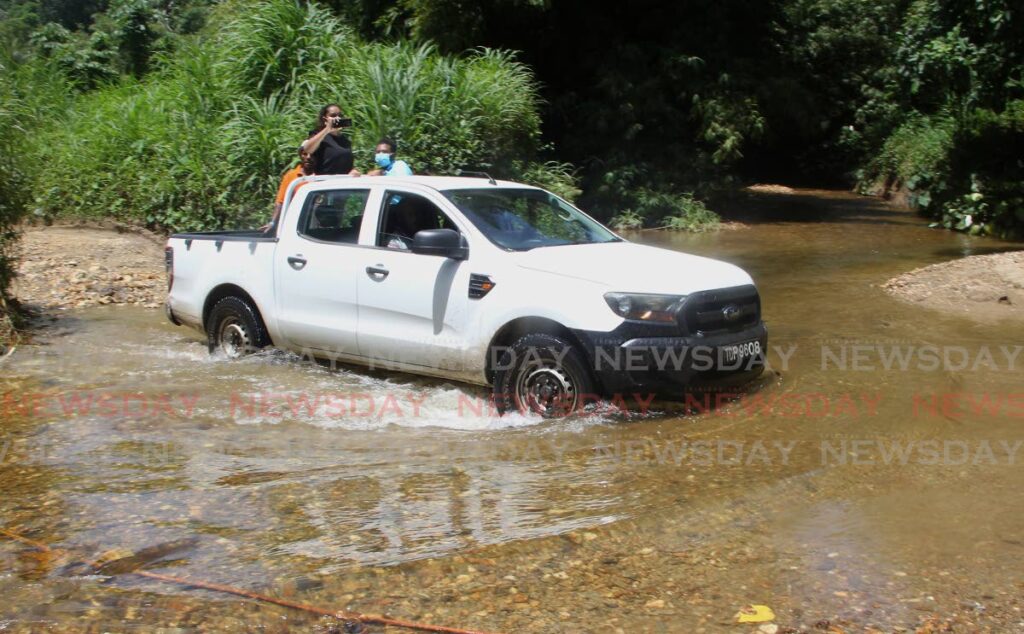
A close-knit community of approximately 100 people who live and farm off Rincon Road, Las Cuevas is cut off from the rest of the country whenever it rains heavily.
Picturesque with lush green trees, wild coffee, clear waters, friendly dogs and welcoming people, the residents of Texas Trace say they become stranded at their homes or outside after torrential rain which sometimes floods the river to over ten feet.
They say they are marooned for anywhere between three-four hours, but it could be longer. This was their experience on Friday after thundershowers swamped most of the country. Their plight has been left unfixed by politicians for more than two decades.
Texas Trace runs off the Rincon Road in Las Cuevas, about two miles before the iconic Las Cuevas Bay. It is the primary route to access Trinidad’s third highest waterfall, Habio Falls.
A challenging hike, but it attracts tourists from all over the world and they too are left abandoned whenever the river floods.
To access Rincon Road, residents must cross the confluence of four rivers – Rincon, Texas, Petit Texas and Blue Basin rivers – by foot or by four-wheel-drive vehicles when the rivers are low with a depth of 14 inches. During the rainy season, travel is restricted.
To get across on foot or by vehicle, villagers stacked over 60 sand bags at the major crossing. to get to the other side.
The flowing river, however, constantly erodes the sandbags which are in need of frequent repair.
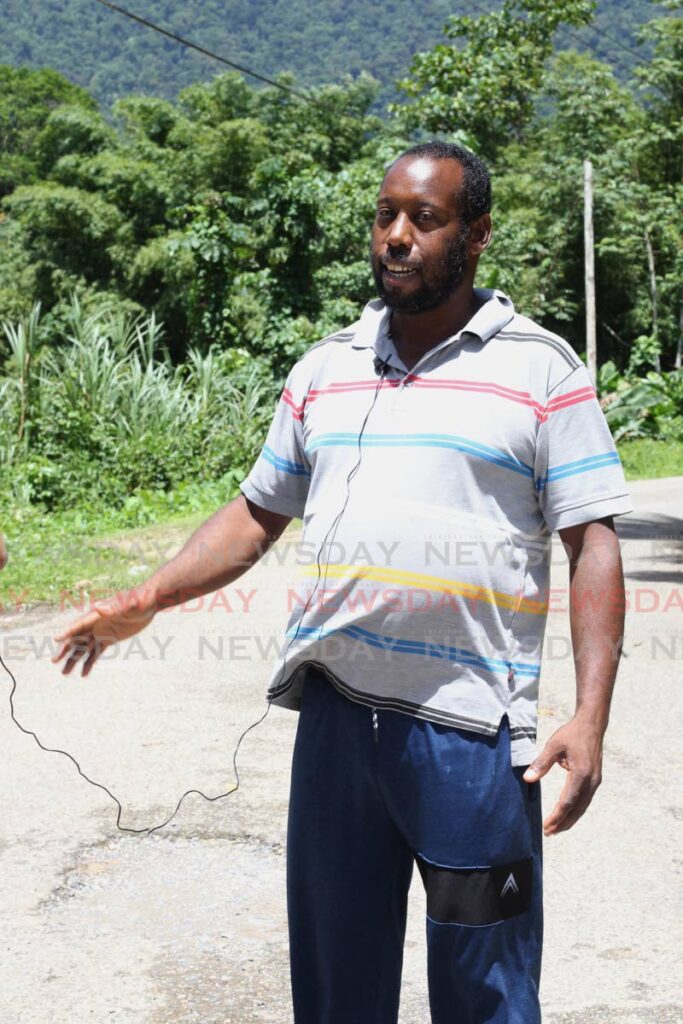
For the 25 families who make the trek along the unpaved road to the main road, all they want is a bridge to get home safely and to take their produce to the market.
Over the years, the local government councillor for the district Sudhir Sagramsingh said he has provided as much help as he can.
Sagramsingh said that communities such as Texas Trace is quite small and there are many like communities in the Maracas Bay/ Santa Cruz/ La Fillette district which he serves that face similar infrastructural inadequacies.
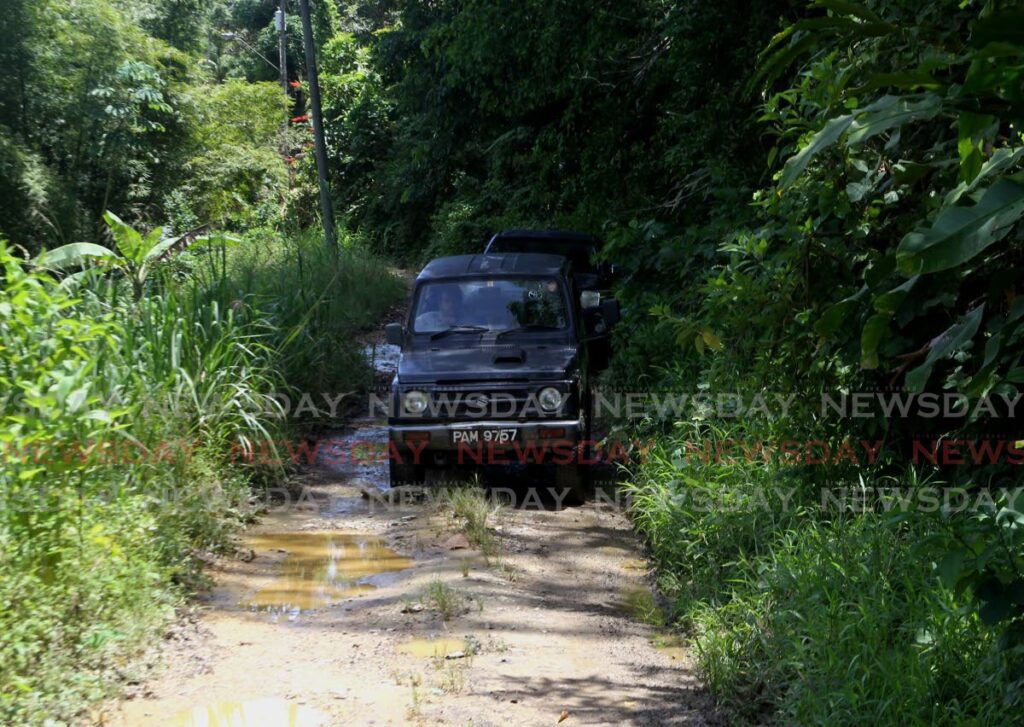
In San Juan/ Laventille Regional Corporation there are 170,000 people and resources are stretched and it cannot accommodate everyone that have the experience of the Texas Trace community, he said.
"There are no fixed projects for a bridge in the works," said Sagramsingh. He said since road and the river intertwines at many points, he has made efforts to ensure that the waterway is frequently cleared and material, such as sand bags, are provided to help the residents get across the river.
Sagramsingh advised the residents to apply for assistance through the National Self Help Commission to get materials to construct a bridge and they can provide the labour. He said the corporation would be willing to lend its equipment for the project.
The councillor said he was willing to write a letter in support of their initiative but the lack of funds at the corporation does not allow him to do much more.
Asked whether temporary bailey bridge can be used, Sagramsingh said, the corporation had made requests to the Ministry of Works for assistance. He says "no community is left behind intentionally" but with limited funds, it is the best that can be done.
Contacted for comment, St Ann's East MP Dr Nyan Gadsby-Dolly on Thursday said the residents' plight had been referred to the Rural Development and Local Government Ministry and she will "continue to liaise with the ministry to keep it on the front burner."
Told that the community was cut off after the river was flooded by more than ten feet of water on Friday, Gadsby-Dolly, in a text message, said the matter had been "reported to Rural Development for action."
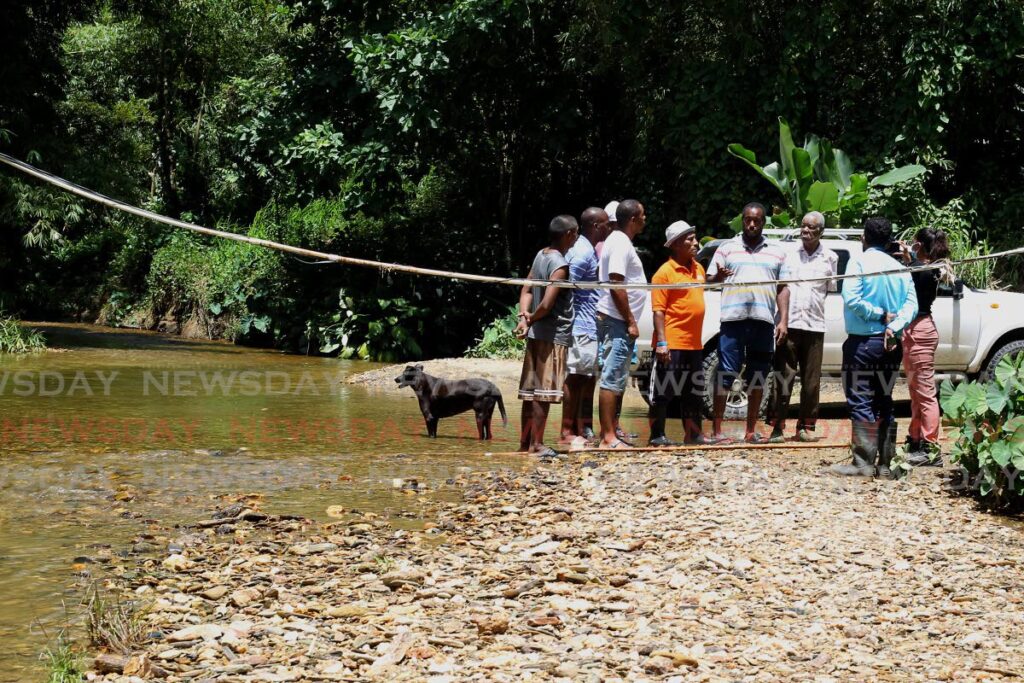
Rural Development Minister Faris Al-Rawi did not respond to calls and a text message seeking a response.
During a visit to the community on Wednesday, residents gathered at the river's edge to plead for assistance through this newspaper.
Most of the residents are farmers and there is one a baker also plies his trade along the Eastern Main Road.
Children on Texas Trace often miss school when it rains. To attend school, "you can’t dress at home," Lennon Forde says, "they must walk with their uniforms and shoes in hand, because they can’t pass."
Forde, a fire officer assigned to Woodbrook Station, says he too must hold his uniform above the water to cross the river at times to get to work.
"MPs are just for election time,” Forde said. Another resident recalled Gadsby-Dolly did visit the community unannounced, after the police jeep stuck in the river last July and videos of the incident surfaced on social media.
Some of the 15 children who live in the community often have to spend nights at relatives or neighbours on the opposite side of the river to get to school on time for crucial exams.
Another neighbour Nelson Noreiga-Gooding said the pandemic made the struggle worse for students because internet service is weak there, if it connects at all and many times could not log on to online classes.
Farmers say they have been disadvantaged for much longer. Agriculture is the primary industry in this area where crops such as cabbage, melongene, cucumber, pimentos, chadon beni, bananas, breadfruit, chataigne, coconuts are bountiful.
Farmers have gotten accustomed to flooding in the community and expect some crop loss annually. They have to carry bags of their crops across the flooded river sometines to get to the market on time.
Another farmer Peter Noreiga says he has to pay double to get his goods to the market. One payment is made to get his goods out of his garden, across the river, to Rincon Road and another to the market.
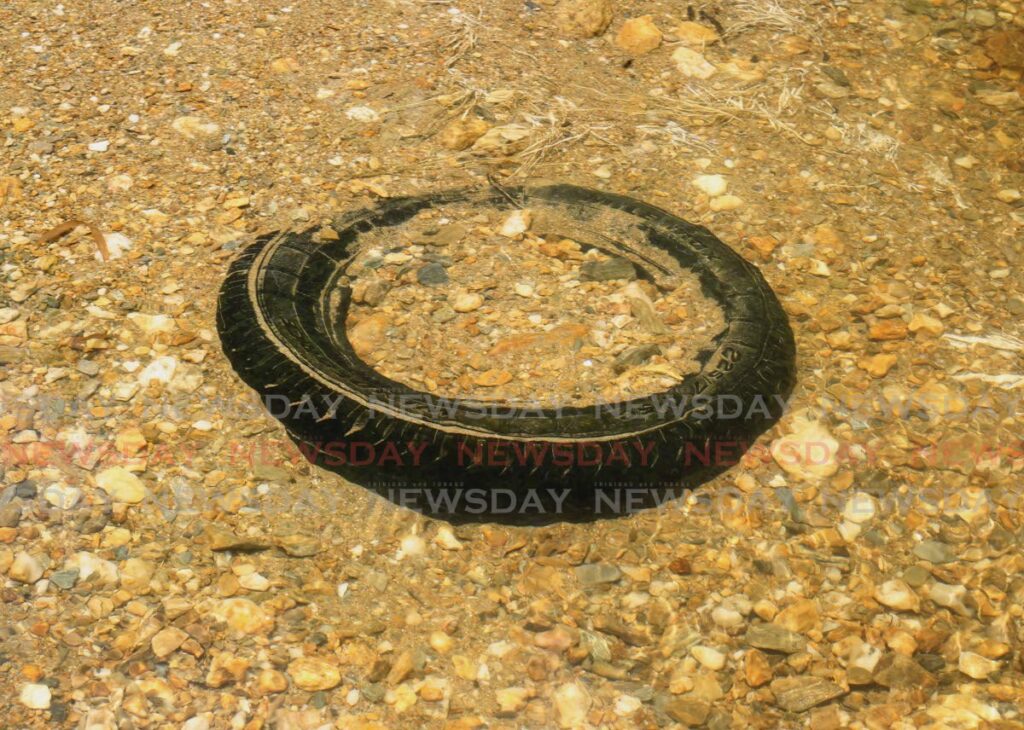
“When you have to pay double transport by the time you reach the market, you don't get to charge extra.”
As a registered farmer with the Ministry of Agriculture, he said ministry officials visited in March and he hoped that they would follow through with the construction of a bridge.
Villagers often park their cars on Rincon Road during the day time but move them by neighbours on the opposite side of the river at night for safety.
They described their community as safe, without any history of violence, drug trafficking or robberies. They insist that any drug-related criminality in the Las Cuevas area is limited to the beach district. This was confirmed by police at the Maracas Police Station.
They said maxi-loads of visitors frequent the waterfalls and blackpool but the verhicles cannot venture beyond the river. Forde says hikers can become trapped whenever there is heavy rain.
When hikers are lost or injured neither fire truck nor ambulance could get to them, residents said.
An army truck was able to cross during the last hiking emergency and residents have to depend on the only villager with a Suzuki jeep who lives in the last house in community during an emergency to get out.


Comments
"100 stranded residents of Rincon Road beg for bridge"